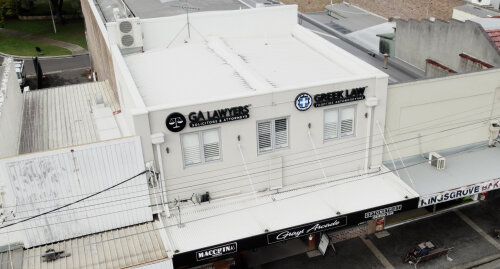Best Insurance Fraud Lawyers in Sydney
Share your needs with us, get contacted by law firms.
Free. Takes 2 min.
List of the best lawyers in Sydney, Australia
About Insurance Fraud Law in Sydney, Australia
Insurance Fraud is a serious crime in Sydney, Australia, punishable under several legislations including the Crimes Act 1900, the Insurance Contracts Act 1984 and more. It involves acts intended to defraud insurance processes for personal benefit. This may include false claims, exaggerating claims, not disclosing relevant information or making false statements in relation to obtaining insurance.
Why You May Need a Lawyer
If you are charged with insurance fraud, hiring a lawyer is highly advisable. Lawyers have an in-depth understanding of the legal landscape, which is essential to protect your rights and to navigate the complexities of your case effectively. You may also need legal assistance if:
- You have been wrongfully accused of Insurance Fraud.
- You need advice on the consequences of a conviction.
- You want to understand the best legal strategies for your case.
- You need help in finding evidence or negotiating a settlement or plea bargain.
Local Laws Overview
The local laws regarding insurance fraud are primarily derived from the Crimes Act 1900 and the Insurance Contracts Act 1984. The Crimes Act makes it illegal to deceive or cheat to obtain financial advantage, including insurance benefits, punishable by up to 10 years in prison. The Insurance Contracts Act emphasizes the duty of ‘Utmost Good Faith’ which requires all parties to an insurance contract to act honestly and not mislead or withhold critical information.
Frequently Asked Questions
What are the penalties for Insurance Fraud in Sydney?
The penalties vary depending on the severity, but may include substantial fines and imprisonment up to 10 years under the Crimes Act 1900.
Can someone be convicted of Insurance Fraud even if they didn't receive any payout?
Yes, the intention to deceive or present false information to an insurance company is considered a crime even if a payout was not made.
What should I do if I am falsely accused of Insurance Fraud?
If you are falsely accused of insurance fraud, it’s critical to seek legal representation immediately. A lawyer will guide you through the necessary steps to build your defense case.
What qualifies as evidence in an Insurance Fraud case?
Evidence in Insurance Fraud cases can include any pertinent documents, correspondence, witness testimony, expert opinion, digital records, and more. Your lawyer will help identify and gather necessary evidence.
Are Insurance Fraud cases civil or criminal?
Insurance Fraud cases can be either civil or criminal, depending on the nature and severity of the alleged fraud. Severe cases of intentional and organized fraud can lead to criminal charges.
Additional Resources
State-based regulatory bodies like the New South Wales Department of Justice and national bodies like the Australian Securities and Investments Commission are some key resources for information on Insurance Fraud. Organizations such as the Insurance Council of Australia may also provide valuable insights.
Next Steps
If you need legal assistance in an Insurance Fraud case, the first step is to consult with a lawyer specializing in this field. Prepare to discuss in detail about your case and bring any relevant documents. It is vital to remain truthful and cooperative throughout the legal process. Remember that it is in your best interest to retain legal counsel as soon as possible to protect your rights and build a robust defense strategy.
Lawzana helps you find the best lawyers and law firms in Sydney through a curated and pre-screened list of qualified legal professionals. Our platform offers rankings and detailed profiles of attorneys and law firms, allowing you to compare based on practice areas, including Insurance Fraud, experience, and client feedback.
Each profile includes a description of the firm's areas of practice, client reviews, team members and partners, year of establishment, spoken languages, office locations, contact information, social media presence, and any published articles or resources. Most firms on our platform speak English and are experienced in both local and international legal matters.
Get a quote from top-rated law firms in Sydney, Australia — quickly, securely, and without unnecessary hassle.
Disclaimer:
The information provided on this page is for general informational purposes only and does not constitute legal advice. While we strive to ensure the accuracy and relevance of the content, legal information may change over time, and interpretations of the law can vary. You should always consult with a qualified legal professional for advice specific to your situation.
We disclaim all liability for actions taken or not taken based on the content of this page. If you believe any information is incorrect or outdated, please contact us, and we will review and update it where appropriate.











